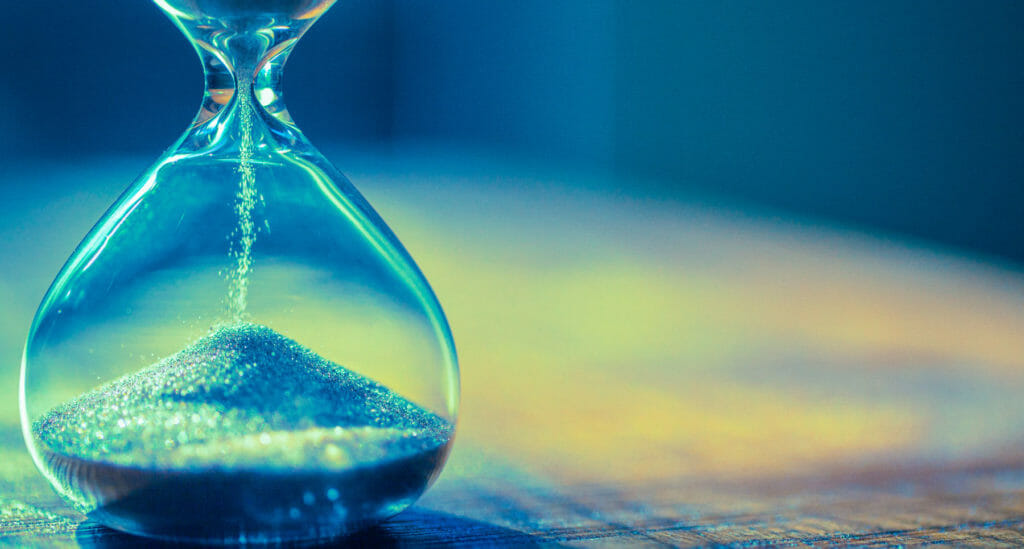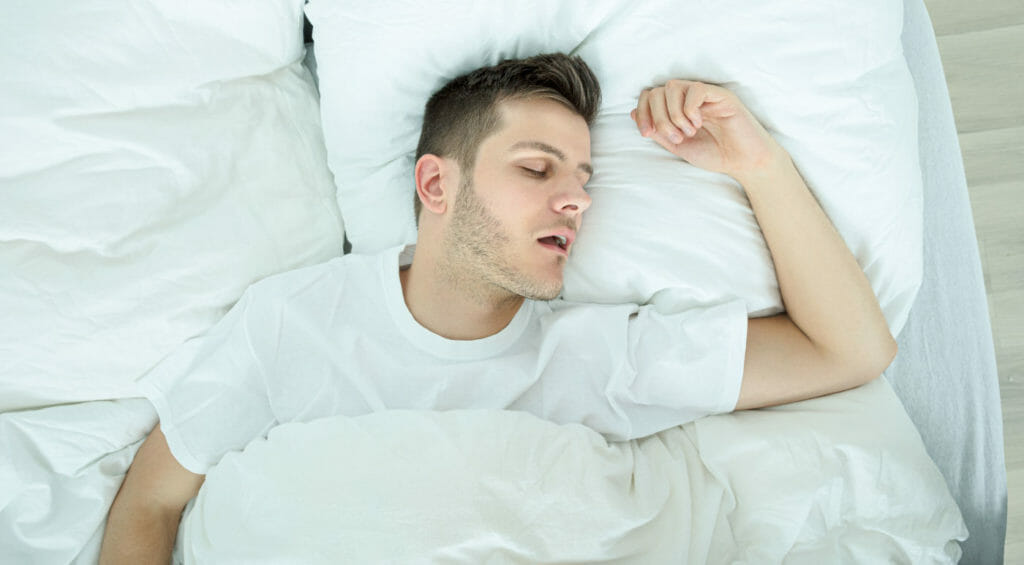
You may have heard about the various sleep stages and that REM (Rapid Eye Movement sleep) is one of them. Enhancing our mind-functioning abilities, REM is a critical stage within the sleep cycle.
As crucial as it is, how much REM sleep do you need? In this article, we’ll broaden the discussion on REM sleep and include what it is, why it’s important, and how much we need, as well as at which points it surfaces during the night.
Sleep and Its 5 Stages
After we lie down on our mattress, close our eyes, and fall asleep, a lot of unseen brain and body activity go on—all night long. Sleep is a time for us to take it down a notch. It allows our minds and bodies to restore and recharge. Part of what it takes to get healing and restorative sleep is to successfully pass through the various five stages of the sleep cycle, multiple times, throughout the night.
The chart below captures sleep information provided by the University Health News. It highlights the five sleep stages adults pass through and includes information about what they are, the percentage of time they’re active within a standard 90- to 120-minute sleep cycle, and why they’re important. As you’ll see, REM sleep is unlike the four non-REM sleep stages. From this chart, you can also calculate how much REM sleep you need.
Stages of an Adult Sleep Cycle: 90-120 Minutes (Sleep cycles last a bit shorter earlier in the night.)
| Stage | Time in % and Minutes | Brain Waves | Importance |
| 1 | 5% or ~6 minutes | Very Light | Decrease in brain and muscle activity. We easily awaken. Prepares us for progressing into deeper sleep. |
| 2 | 50% or ~52 minutes | Light | Heart rate, breathing, and brain waves slow down. Muscles become relaxed. |
| 3 | 10% or ~11 minutes | Deep | Very slow brain waves and breathing, blood pressure drops, muscles relax more. Difficult to wake up. Stage is associated with tissue repair and hormone release, including growth hormone. |
| 4 | 10% or ~11 minutes | Deep | Continuation of Stage 3 |
| REM | 25% or ~27 minutes | Active | Heart rate, breathing, and blood pressure all increase to awake levels. Intense brain activity. Eyes dart under closed lids. Most important stage for dreaming, memory consolidation, and new learning. |
Typically, a 90- to 120-minute sleep cycle recurs five to six times during the night. As noted in Psychology Today, for the first two to three sleep cycles, we spend most of our time in deep NREM sleep (Stages 3 and 4), while during the final two to three sleep cycles, we spend much more time in REM sleep.
When factoring the above variables together, they reveal that we need approximately 1hr 45min to 2hr 45min of dreamy REM sleep each night. Too little REM, as well as too much, can create challenges for us.
How Much REM Sleep Do Children Need vs. Adults?

While the typical adult’s need for REM sleep averages approximately 20-25% of total sleep time, babies and very young children require far more. Research indicates that the time a baby spends in REM reaches close to 50% of their overall sleep time. The amount of REM sleep we need decreases from childhood to teenage years and finally settles in at the 20-25% adult quota.
What Happens During REM Sleep?
While non-REM sleep stages involve a physiological slowdown of our bodies (including brain waves), once we enter REM sleep all bets are off. Our brains become quite active in REM with brain waves coming close to those of a waking brain. Moreover, the vast majority of dreams take place during REM sleep, which may explain the rapid movement of our eyes.
During REM, our muscles become temporarily paralyzed. This is known as REM atonia. This is believed to occur as the body’s way of protecting us from becoming physically active while sleeping, which could put us at high risk for injury.
Some people suffer from REM Sleep Behavior Disorder. This is a condition where sleepers become lively during REM by yelling, screaming, moving, kicking, punching, and even jumping and running out of bed.
REM appears to offer important restorative function of the brain. According to Newborn and Nursing Infant Reviews, REM sleep seems to play a critical role in neurological development in infants.
In addition to the role REM has in our dreams (which are believed to help us resolve things), as adults REM sleep also may support memory, emotional processing (particularly of emotionally difficult experiences), and “clearing out the clutter” of the prior day’s learning and information collecting.
What If You Get Too Much or Too Little REM Sleep?

They say that too much of a good thing is no longer good. This seems to be true for REM sleep as well. According to the organization ResMed, stress can extend REM sleep beyond normal levels, and too much REM may contribute to feeling tired the next day.
Too little REM may lead to consequences on your mood, alertness, and ability to focus. You may have more difficulty taking in new information and memory retention. Alcohol consumption too close to bedtime diminishes time spent in REM sleep (no, we’re not advocating drinking before bed to get less REM).
Summing Up How Much REM Sleep You Need
When wondering about how much REM sleep you need, there are a few factors to keep in mind. How much REM sleep you need will vary throughout your lifetime (particularly in the years from infancy to adulthood). While as adults we satisfy our REM sleep needs at 20-25% of total sleep time, babies and very young children need to spend up to 50% of their time asleep in REM.
As adults, and throughout our lives, it’s important to continue acquiring a healthy amount of REM sleep. For most of us, this amount is around two to three hours each night. Not short-changing ourselves of REM sleep is without a doubt in our best interest as it supports our overall mind function and helps regulate our emotions, memory, learning, and absorbing new information.
Additional Resources on Common Sleep Questions
How Many Hours of Sleep Should You Get?
Hypnosis for the Struggling Sleeper